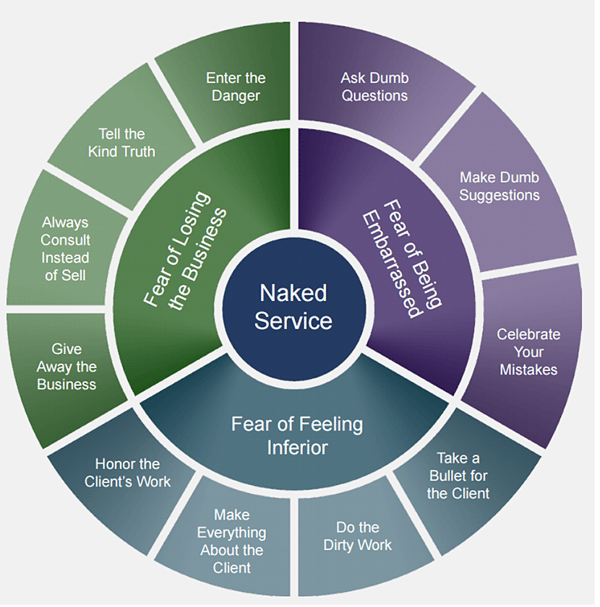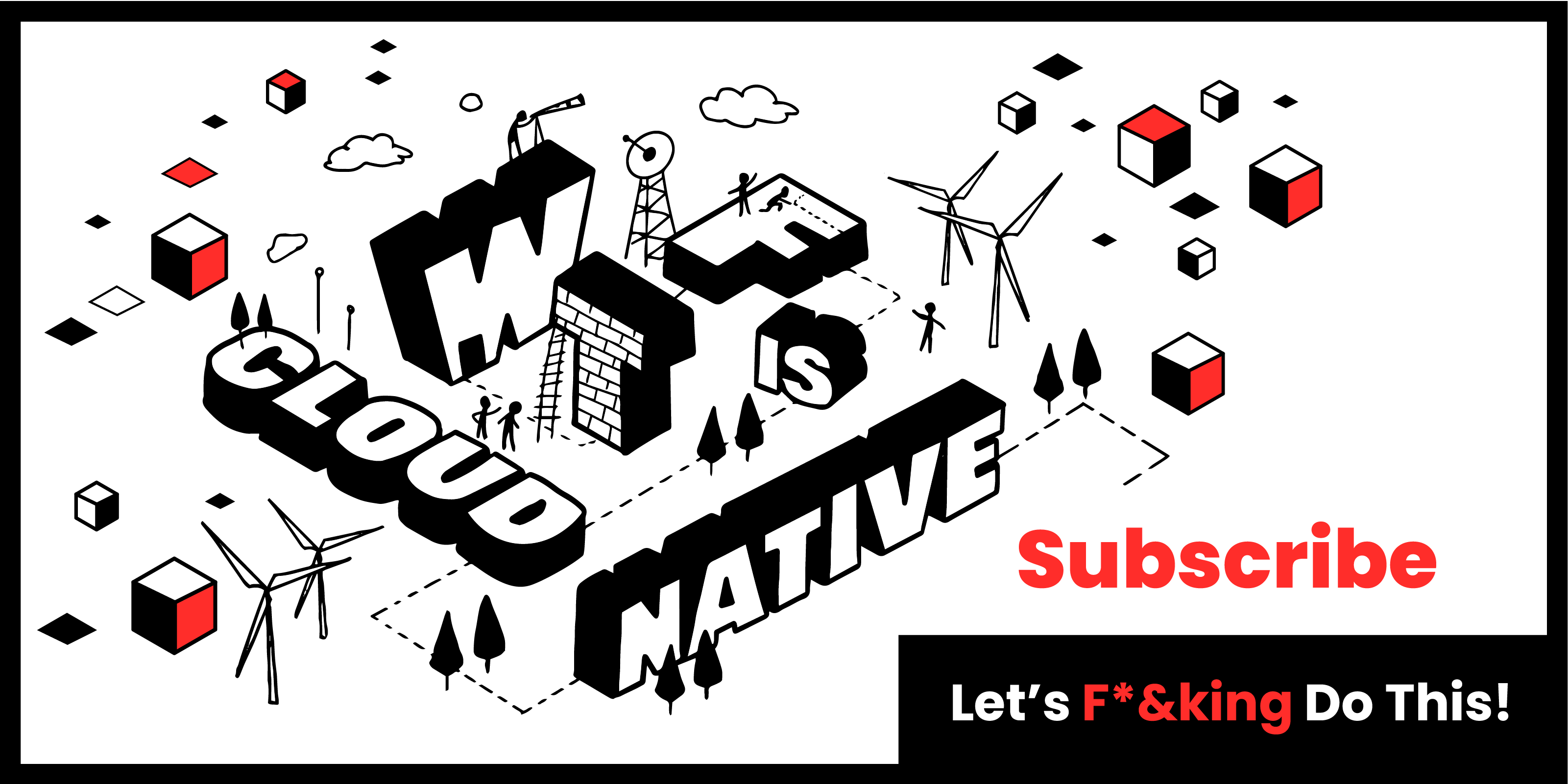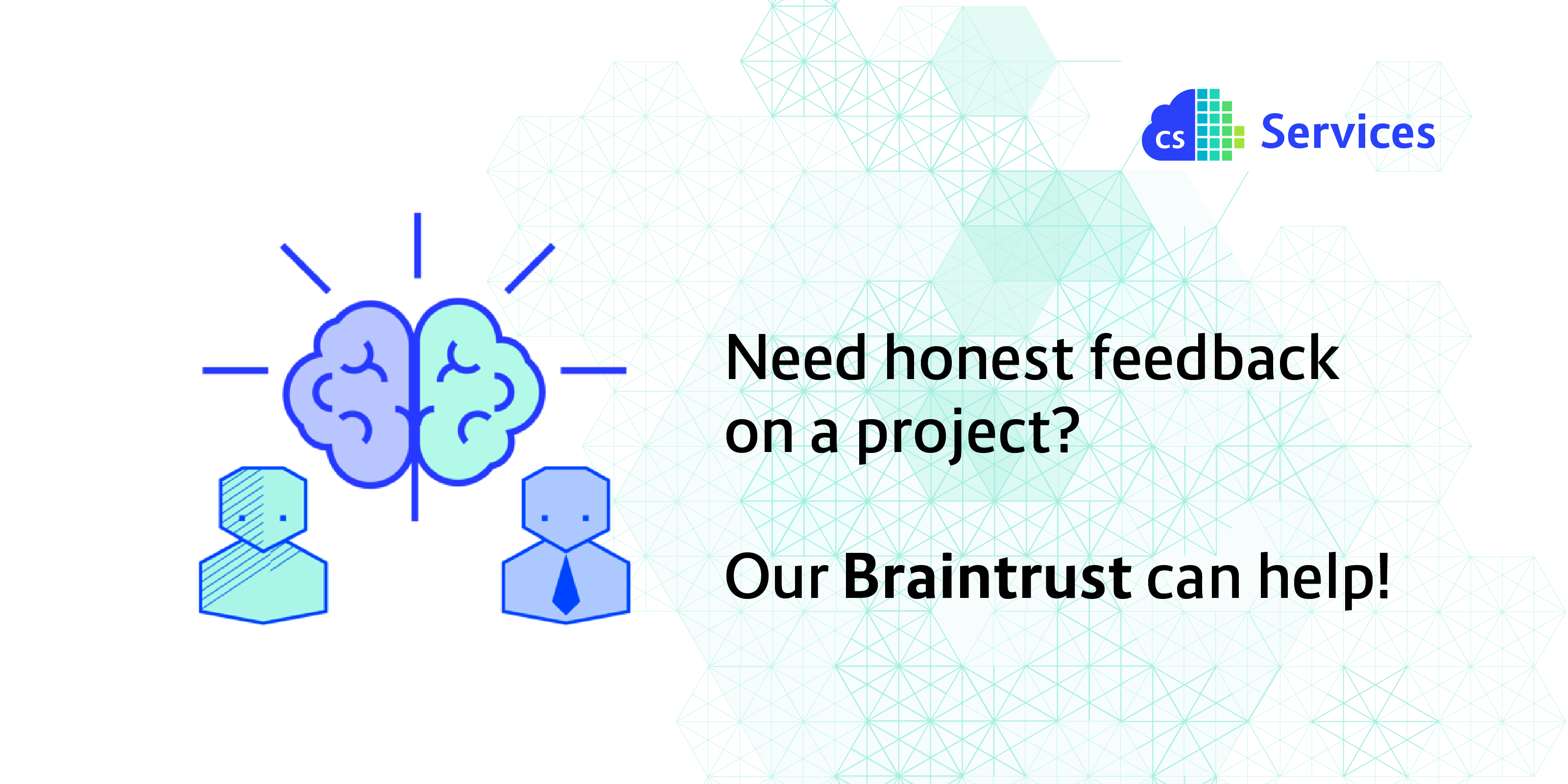Over the course of my time at Container Solutions, I have read a lot of business books and consulting books, but none that got as close to what we at CS believe about working with customers as Patrick Lencioni’s Getting Naked.

The model used in the book is centered on being vulnerable and three fears that could hold us back. By applying these principles, each of us at Container Soutions gain higher trust and confidence from our clients. As a result, we have experienced great customer loyalty and more referrals.
Here’s what Lencioni’s book says, and how it applies to what we do at CS.
The Three Fears
The book describes the three fears that can prevent business leaders and consultants from embracing vulnerability, which can also be seen as being fearless. At Container Solutions, we embrace these things already, but haven’t made them explicit. Our onboarding and mentoring programmes prepare us to learn these principles, and we practise them later on during our customer projects and assessments.
Fear of losing the business
Like any other company in the world, we at CS don’t want to lose our customers. But this fear could hold us back in speaking openly and honest to them, as we might fear this might jeopardise the relationship. But by speaking up, the chances are higher for us as a company to be their trusted advisors and even get more business.
We have found that our customers want to know that we’re most interested in helping them, even if we must sometimes deliver tough news, and we’re not treating them as just another revenue stream. Customers trust partners who are honest and direct with them.
Fear of being embarrassed
No one knows all the things. But as consultants, we are hired for our expertise, and so it is natural to want to outsmart our competitors and try to prevent mistakes by staying on safe ground. This is especially true when we are in front of a customer who is paying us for our advice or counsel.
But the better approach, as spelled out in Getting Naked, is being willing to ask all kinds of questions and make even ‘dumb’ suggestions, even if those questions and suggestions could turn out to be utterly wrong. (Our company value of psychological safety means no one is shamed for speaking up with their ideas. From such brainstorming comes innovation.)
This creates trust, as our customer knows we will not hold back opinions, ideas, or mistakes. By doing, so we create a greater level of transparency, which is valued more than being the smartest kid in the room.
Fear of feeling inferior
When we are working with our customers, we are a service provider and that service shares the same root meaning of servant or subservience. By accepting this and overcoming the need to feel important, we embrace humility. We do whatever a customer needs us to do to help them reach their goals.
This is especially true in transformational projects. Sometimes these projects can require us to do tasks that are below our Cloud Native experts’ skill level. But rolling up our sleeves and getting those tasks done, we gain our clients’ trust, which can lead to bigger and more complex projects where our experts can truly add value.
We are willing to put our egos aside and put our customers’ needs first. They are more important than the need to always play with the latest tech.
How We Work
It is important to understand these three fears and navigate them. Here’s how we put our values into practice with our clients..
Always consult instead of sell.
At CS the conversations aren’t about selling. Of course we’re a business and we need to sell, but we’re not preparing decks and doing market research, etc. Instead we use each opportunity to speak with someone as an opportunity to consult.
This principle has been well described in Matthew Dixon and Brent Adamson’s book The Challenger Sale. We at CS don’t start our relationship with potential customers by telling them what we would do when hired. Instead, we start consulting them straight away, as if we were already being paid.
We do workshops on Cloud Native patterns, talk to potential clients about their challenges, and suggest possible ways forward. We rarely talk about potential deal size, prices and qualification criteria. Instead we get potential customers who want to work with us and the rest becomes second.
With this, sales become a free consulting session— which, in turn, usually convinces the potential customer to make a decision by themselves.
Give away the business.
We at Container Solutions are more interested in helping our customers for the long term, rather than maximising short-term revenue. One example is structuring a deal in a way to fit a client’s budget. We have done this on multiple occasions and it results in long-term relationships, more business, and usually referrals, which are higher in value than the short-term revenue would have been if we had been less flexible.
Tell the kind truth.
Often, we need to confront our customers with a difficult message, one the client might not like hearing, even at the cost of putting the relationship with the client at risk. It is a risky thing, but doing so shows that it is more important to serve the client’s need than it is to protect our business.
And yet, we try to deliver bad news with dignity and kindness, empathy and respect. One recent example we experienced was telling a CEO at a client business that we believed he had chosen a wrong operational model for his company. In another instance, we had to tell a vice president that the way he operates is confusing the team involved in our project, has a negative impact on the team’s performance, and was putting the project at risk.
In both cases, it was a hard message to deliver and even harder to receive. But it was always with the best intention to serve the customer’s needs.
But tell the truth.
When we are working at our customers’ organisations, we don’t shy away from the elephants in the room. This requires courage to fearlessly deal with an issue that everyone else is afraid to address. This can be stating the obvious or presenting our findings amidst opposition from individuals in the company.
Our Cloud Native assessments, the first step in any transformation we undertake, involve three days of interviews and workshops, helping us determine an organisation’s current state, resulting in a gap analysis between that and its goals. We plot this on our Cloud Native Maturity Matrix, giving companies a map of their situation.
After our assessments, we share our findings before our presentation, and more than once we get asked to change or tweak the findings report. We will do this of course, if we have made mistakes which lead to wrong conclusions or have wrong names of team, systems, or the like.
But when it comes to changing our findings or conclusion, our response is, we don’t do this and we will present this to all the stakeholders. If you feel uncomfortable about what we found, we say, let’s work on the wording, but not on the findings themselves.
By doing so, we demonstrate that we are willing to be candid about the problems a client faces, and that candour, we believe, helps make our solutions more reliable and trustworthy.
Ask ‘dumb’ questions.
When we engage with our customers, it is sometimes necessary to ask the ‘dumb’ question. We need to ask the obvious questions in situations when we are not 100% sure what is meant by a certain acronym, or why things are done a certain way. Getting this clarity from a client helps us precise conclusions and come up with the possible options.
In most cases, we have found that other people in the room may have the same ‘dumb’ questions, but are too embarrassed to ask. We have learned that customers appreciate our interest in learning about them. Usually, even employees from the client’s company will thank us for the questions.
Make ‘dumb’ suggestions.
We know our customers won’t remember us for not-so-good ideas, but for the great ones. So, we use experiments to identify those great solutions. Small-scale experiments, or proofs of concept, are an essential part of our method for Cloud Native transformations. They help us eliminate weak options early, and reduce risk as a project continues and gets more complex.
We don’t hold back any idea because we fear it wouldn’t work out. We don’t only offer safe bets
in terms of solutions.
We own our mistakes.
We don’t enjoy being wrong, but CS consultants realise that making mistakes are inevitable. So we accept the mistakes we make and take complete responsibility and will never hide or downplay them. Instead, we will call them out and communicate openly about them with our customers. They know that we will not hide anything from them.
We will always apologise for every mistake we make and fix it at whatever cost. Our customers expect honesty and transparency from us, not being perfect.
And own the client’s mistakes.
This may seem counterintuitive, but it is not about allowing our customer to do the obvious wrong thing and then taking the blame for it. What this means is we are accepting responsibility for things which may or may not have been our fault, to take the burden off from our customers during difficult times.
Put the client first.
We as CS don’t try to shift the customer’s attention to us and our accomplishments, experience, or knowledge. Our core focus is on understanding, honoring, and supporting the customer. The book Humble Consulting, by Edgar H. Schein, is one we take our cues from. Instead of bragging about our accomplishments, we aim to facilitate learning and collaboration with our clients’ teams.
Honor the client’s work.
We see a lot of different businesses from different industry verticals. They vary in size, products, and in many more aspects. We as CS honor our clients by taking an active interest in their business and by appreciating the importance of that business to the customer and the customer’s customers.
What do we do when a potential customer is doing business we don’t respect? It is as simple as this: We don’t work with them.
Illustration from Getting Naked, by Patrick Lencioni.




 Previous article
Previous article
